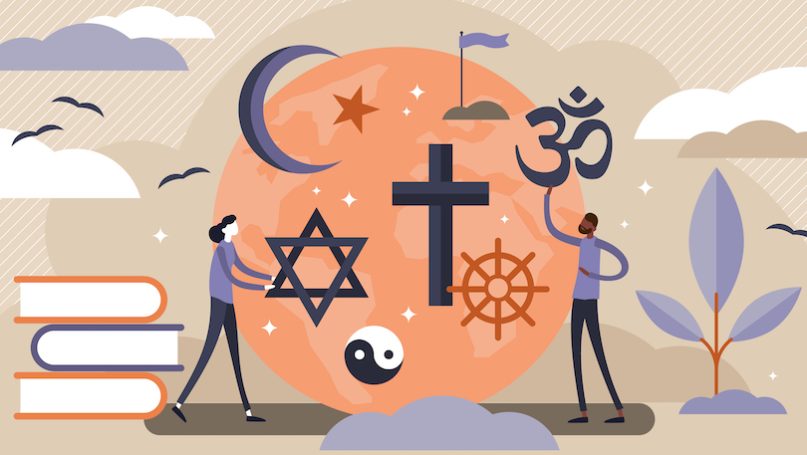Reference




OpenAI's Answer
The intersection of feminism with various religious beliefs and practices is complex and multifaceted, often marked by both conflict and potential for mutual enrichment. Here are some key points drawn from various sources:
1. Feminist Reinterpretation of Religious Texts and Traditions
Feminists often seek to reinterpret or discard components of religious traditions that they view as detrimental to women's well-being and social empowerment. This may involve a critical examination of religious texts, practices, and doctrines to identify and challenge patriarchal elements (Wiley Online Library).
2. Feminism's Stance Against Sexism in Religion
Feminism is inherently opposed to sexism and misogyny. Therefore, when these issues are present within religious communities and practices, feminists will challenge and seek to reform those elements (ABC Religion).
3. Religion as a Conservative Force
Many feminists argue that religion often acts as a conservative force, maintaining the status quo and perpetuating patriarchal structures. This perspective aligns with broader sociological views that see religion as a stabilizing force in society, which can both positively and negatively impact gender relations (Tutor2u Sociology).
4. Feminism and Religious Hierarchies
Modern feminism sometimes finds itself at odds with traditional religious beliefs, especially where these beliefs are upheld by patriarchal hierarchies. This can make reconciliation between feminism and certain religious practices challenging (M-A Chronicle).
5. Emergence of Feminist Theology
Feminist theology is a movement that has emerged within several religions, including Christianity, Judaism, Islam, and Buddhism. It aims to reimagine divine figures and religious practices in ways that incorporate women's experiences and perspectives, often critiquing and reforming patriarchal aspects (Wikipedia on Feminist Theology).
6. Intersectionality: Religion, Feminism, and Other Identities
The intersection of religion and feminism also involves the consideration of other identities and social positions, such as race, class, and sexuality. This intersectional approach helps to understand the multifaceted experiences of women in religious contexts (Women and Religion).
Key Images:
Further Reading:
These discussions underscore the dynamic and sometimes contentious relationship between feminism and religion, but also highlight the potential for positive change and mutual enrichment.
Follow Up
Related
How does the concept of shijie relate to Christian beliefs in resurrection?
What is the difference between shijie and traditional death in Daoist beliefs?
How does the shijie process reflect early medieval Chinese beliefs on immortality?
Why did Wang Chong criticize the belief in shijie immortality?